Churches fight elite efforts to silence Christians
Is the Bible hate speech? For Australian institutional life now to become so irrationally hostile to Christianity is a mark of madness, a terrible cultural mistake.
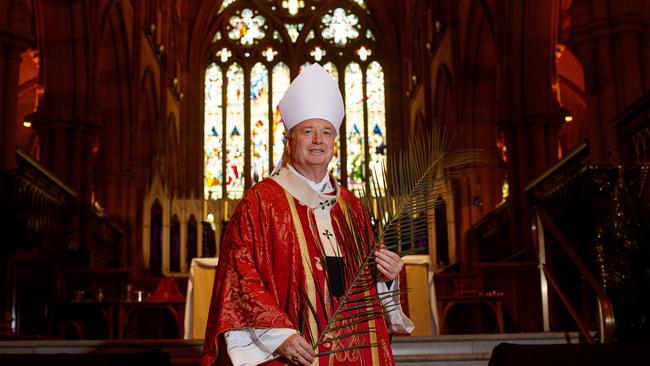
In fact, this is almost the case in law already, as we’ll see. A slew of legal, legislative, bureaucratic and cultural trends make it likely to become a practical reality in time.
It will not only be the Bible. Countless Christian classics from almost every denomination will be liable to be, if not banned from sale, banned from public display, recital or reading aloud. The Catholic catechism, the official compendium of belief for the world’s 1.3 billion Catholics, may well have to be trafficked in brown paper envelopes under the counter.
Christianity may become like smoking, tolerated at law for a while, but ever more narrowly, with ever more restrictions, actively discouraged by punitive financial measures.
The Albanese government, like the Morrison government, has abandoned the attempt at a religious discrimination law to protect people of faith. It won’t even present a bill for public consideration.
Both sides of politics, when in government, are paralysed by fear of having the debate about religious freedom and how that interacts with other freedoms. Surely the voice referendum demonstrated the danger of not having a big open debate before implementing fundamental change.
This political timidity indicates cowardice in the face of rising prejudice, in some cases hatred, against Christianity in the activist class, and the anti-Christian assumptions increasingly permeating the bureaucratic and institutional elites. Former Labor senator Jacinta Collins, now executive director of the National Catholic Education Commission, tells Inquirer: “In the public policy class, the political elite and the policy bureaucracy, it’s becoming more common not to see Christianity as a social good.”
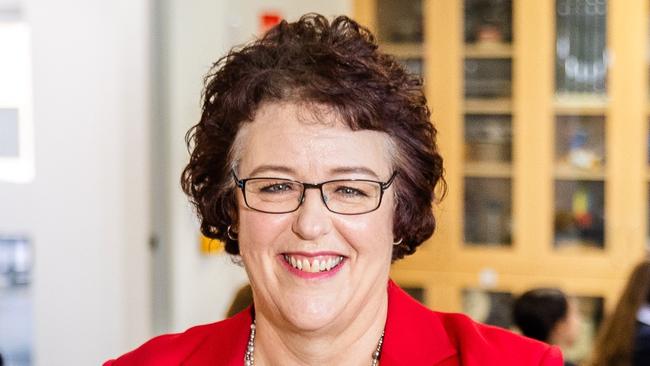
Melbourne’s Catholic Archbishop, Peter Comensoli, remarks: “Step by small step, the path of living a life of faith in our country is being undermined. But there are always seeds of hope.”
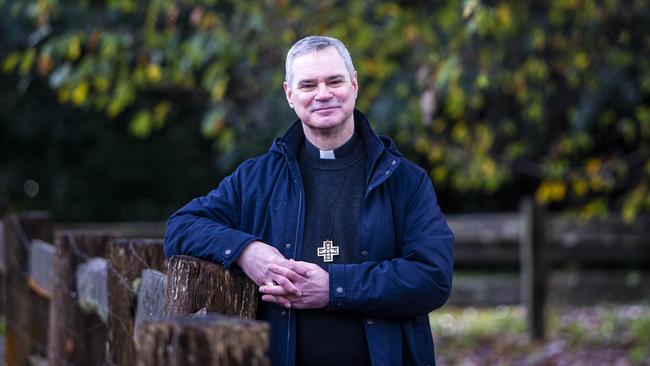
A fundamental cultural change is under way here, perhaps the most destructive we’ve seen. Official Australia, more the bureaucrat/academic/media class than politicians, no longer sees Christianity as a social good. Rather, they see it now as anti-social, something to be constrained.
This is not a story about a perfidious left-wing Labor government assaulting Christian churches. Both sides of politics are flummoxed and scared by this. Neither handles it well. Anthony Albanese and at least some of his ministers are sympathetic to Christian churches. But there’s a severe limit to how far this sympathy will take them in defending Christian institutions against bureaucratic, activist and sectional effort to destroy their independence and religious integrity.
There’s a lot of legislative action, but the seething cultural dynamics suggest no prospect of lasting settlement.
The Sex Discrimination Act contains an exemption, section 38, for religious bodies. Otherwise, Catholics, Greek Orthodox, conservative Anglicans and others couldn’t have an all-male priesthood. Religious schools are allowed to preference teachers who support their core ethos. So Christian schools don’t hire gay activists. They knowingly hire plenty of gay people but they don’t want activist teachers running campaigns against the core beliefs of the school.
Almost none of them hires exclusively co-religionists. Most exhibit common sense; they want enough teachers who share the faith of the school so as to promote those beliefs. Thus, Collins says: “We (Catholic schools) have lots of teachers from diverse religious backgrounds and from none. That’s great, so long as they operate in sympathy with the ethos of the school.”
Most religious school authorities therefore want the right to “discriminate” in hiring staff and to accept and reject whatever students they choose. No Catholic or Anglican I spoke to for this story, or whom I’ve ever met in a lifetime’s involvement in Christian schools, could recall any student ever being expelled for any reason related to sexual identity.
However, non-government schools can expel a student who behaves unacceptably. It’s possible you could get a student who, at age 16 or 17, decided they hated the church their school is affiliated with and campaigned against it. If that student clothed their campaign in a protected characteristic, such as gender status or sexual identity, the school wouldn’t be able to deal with them if the exemption from the Sex Discrimination Act is removed.
It’s wrong to think of this as Christian institutions wanting to discriminate. Rather, they want the right of free association. Christians, like everyone else, should be allowed to associate with each other and form institutions that reflect their values.
Kanishka Raffel, Anglican Archbishop of Sydney, tells Inquirer: “Our (Anglican) schools have young people who identify as LGBT, and are happy and supported and not desperate to go somewhere else – nor would we want them to. We’re only asking for the same rights as political parties have.”
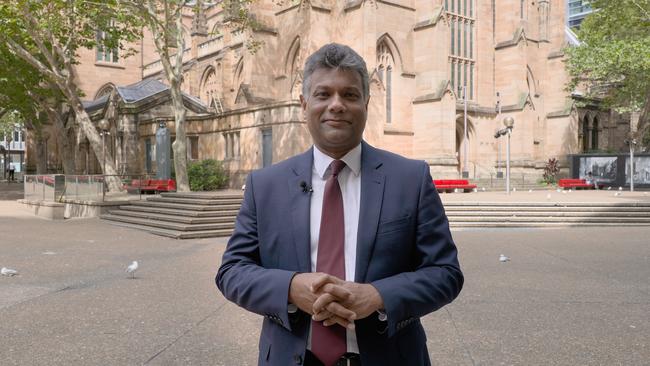
Raffel means that the Labor Party is not required to employ, or even admit as members, people who oppose Labor and support the Liberal Party. Increasingly Christian institutions are denied this elementary freedom.
Raffel continues: “Christianity accepts a pluriform world. The New Testament advises Christians, even if unfairly attacked, to ‘give an answer for their hope’ and to do so with ‘gentleness and respect’.
“That’s the biblical seed of contemporary pluralism. It’s religious. It’s Christian. But at one end of the spectrum there’s a totalitarian secularism that doesn’t countenance religious speech. In Australia we’ve had a confident pluralism. It’s that kind of practice which is now under attack. It (this attack) is driven by activists in thrall to the prevailing ideology of identity and sexuality, who will not countenance alternative world views.”
Raffel’s view, that this intolerance threatens pluralism, is widely shared among Christian denominations. Mark Varughese, founder of the international Kingdomcity Pentecostal church, and a member of the Australian Christian Churches executive, accuses elites of weaponising tolerance.
“The trend appears to be to almost suffocate the ability of faith-based organisations to employ according to their ethos,” Varughese says. “But you don’t have to go to any of these schools. Those who choose to go to them have a right to expect an environment which reflects their beliefs. Weaponising tolerance to erode the freedom of those who want a unique space to grow is the ultimate irony.
“This is not about hating any part of society. The faith of the gospel is based on the belief that we are all sinners and we all need a saviour. People can choose not to believe in God. Why would you be offended by the principles of a God you don’t believe exists?”
The government blames the opposition for not reaching bipartisan agreement on a religious discrimination bill. The opposition says it won’t support a bill the major faith leaders oppose, so the government should get the major faith leaders onboard, then there would be the basis for bipartisanism.
The Catholic and Anglican leaders, plus a group of other faith leaders including non-Christians, wrote to the Prime Minister and Attorney-General Mark Dreyfus, outlining in detail where they thought the draft legislation was inadequate. They argued strongly that removing the religious exemption from the Sex Discrimination Act and passing the religious freedom legislation as it was shown to them would leave Christian schools seriously worse off in their ability to run effectively.
Everybody has somebody else to blame and nothing gets done. The Christian leaders are in a tough, uncertain spot. Some of them think they must press for the best deal they can get from the Albanese government, get something resolved now. A future parliament, with Labor perhaps in minority government and dependent on the Greens, would likely use the “progressive majority” to attack the churches much more aggressively.
The counter-argument is that the churches cannot willingly accept legislation that gravely weakens their ability to run their schools and other institutions with integrity. A weak settlement now would easily be undone by a more aggressively anti-Christian parliament and the churches, having surrendered now, would be in a weaker position then.
The key is they must fight, even if they fight in a kindly way. The Scripture passage Raffel referred to occurs in the first letter of Peter, who advises Christians: “Even if you suffer for doing what is right, you are blessed. Do not fear what they fear, and do not be intimidated, but in your hearts sanctify Christ as Lord. Always be ready to make your defence to anyone who demands from you an account of the hope that is in you; yet do it with gentleness and respect.”
Albanese has promised Christian leaders their schools won’t go backwards in their ability to operate independently. However, now it has abandoned a religious discrimination bill, the government plans to introduce hate speech legislation and insert criminal penalties for vilification or hate speech. Christian leaders find this alarming because, as I suggested at the start of this piece, modern anti-discrimination bodies, extreme LGBTI lobbies and others, now regard normal Christian teaching as hate speech
Comensoli puts the broader cultural context: “It’s death by a thousand cuts. Places of influence like the media, academia, corporations, are all signing up to agendas that see the Christian Church as the problem. We’re disappointed that a religious discrimination bill won’t go ahead. And given that, we’re concerned about the proposed vilification legislation and the very low threshold at which vilification cuts in.”
The proposed hate speech law is a needed response to the shocking, appalling outbreaks of anti-Semitic abuse that Australia, like many Western nations, has witnessed.
How then could such legislation be weaponised against Christians? This is likely because the legislation will not just protect religious and racial identities but all protected characteristics, including sex, gender status, sexual orientation and various other categories. It will introduce criminal penalties, including harsh jail terms, for offensive speech in these areas and will not override state anti-discrimination commissions and laws.
A number of states, Tasmania, Victoria and now Queensland, already have anti-discrimination laws with no or little religious exemption. But generally federal laws take precedence. They won’t do so in this case.
Now, discrimination “offences” incur mainly civil penalties. With hate law legislation they would become criminal offences. Numerous state anti-discrimination commissions have already shown an inclination to regard normal Christian teaching and passages of the Bible effectively as hate speech.
The New International Version of the Bible translates a passage from Paul’s first letter to the Corinthians thus: “Or do you not know that wrongdoers will not inherit the kingdom of God? Do not be deceived: Neither the sexually immoral nor idolaters nor men who have sex with men, nor thieves nor the greedy nor drunkards nor slanderers nor swindlers will inherit the kingdom of God.”
That’s isn’t a condemnation of anyone’s identity but of certain behaviours. The gospels and the letters of Paul, Peter and the others never condemn anyone’s identity. They do teach against certain behaviours and attitudes. A gay sexual orientation in traditional Christian teaching is not a moral fault, but sex outside marriage is immoral. Paul is assuredly not saying that anyone who doesn’t live up to the moral ideal is condemned to hell. But as Varughese put it, all human beings need forgiveness.
Similarly, the Catholic catechism, in explaining human sexuality, comments: “Homosexual acts are inherently disordered.” This also refers to behaviour, not identity. Is it hate speech? In Christian theology, disordered means not in accordance with the order God wants in creation. But in modern parlance disordered has a medical connotation. The catechism also says of gay people that “they must be accepted with respect, compassion and sensitivity” and there must not be discrimination against them.
No one is required to accept, or even pay any attention to, Christian teaching on this or any other matter. The question is whether Christians will be allowed to speak and teach their faith.
Michael Stead, Anglican Bishop of South Sydney, says the proposed hate speech law “has the potential to criminalise religious speech that expresses traditional understandings of human sexuality”.
Everyone is free to disagree with, lampoon, contest or ignore Christian teachings. But should it be a criminal offence for Christians and Christian institutions even to express them? This is not theoretical or far-fetched. In 2015, Catholic Archbishop of Hobart Julian Porteous was subject to 12 months of harassment and inquisition by the Tasmanian Anti-Discrimination Commission. He had published the gentlest defence of traditional marriage. The activist class encouraged people to take offence and lodge a complaint. Eventually the complaint was withdrawn, never adjudicated in Porteous’s favour.
Recently Porteous wrote another pastoral letter and circulated it to Catholic parishes and schools. It taught the positive Christian case for universal human dignity but also said, inter alia: “We are now witnessing the imposition of certain ideological positions on social and moral questions by means of legislation … This has included the attack on the biological reality of being male and female.”
Porteous argued proposed legislative changes allow “for a priest to have a complaint made against him for simply presenting Catholic teaching while preaching at a Sunday mass”. Two Tasmanian politicians threatened to make complaints to the Anti-Discrimination Commission.
I wrote and spoke in favour of a Yes vote in the same-sex marriage plebiscite because I thought it implausible for the state to enforce elements of Christian teaching for which there was no longer a consensus. Also, we’d long ago allowed gay couples to adopt kids. Therefore it seemed better for the kids if their parents had the status of a civil marriage. But in holding that view it’s not necessary to demand Christian churches abandon their teachings of 2000 years or be prosecuted if they don’t do so.
Recently the Productivity Commission argued church school building funds should lose tax deductibility. This seems a vicious assault on religious schools’ ability to build and expand. Every parent who sends a kid to a non-government school pays a massive subsidy to the state by shouldering a large part of the financial burden that the state would otherwise pay for fully.
The Productivity Commission proposal is just one more bit of evidence of how pervasively hostile to Christianity ruling elites have become. Sydney Catholic Archbishop Anthony Fisher recently delivered a brilliant speech imagining Australia in 2035, where he has to submit his weekly sermon in advance to a government censor – under a Greens-teals coalition – that determines what can be said in all religious pronouncements.
That situation prevails in some countries, just not in democracies.
As historian Tom Holland demonstrates so elegantly in Dominion, everything Western society likes about itself – welfare, human rights, equality of the sexes, concern for the poor – comes directly from the Jewish and Christian traditions. Yet we now inhabit a cultural moment in which you can scream “F..k the Jews!” and suffer no legal consequence at all. But read out the wrong bit of the New Testament …
For Australian institutional life now to become so irrationally hostile to Christianity is a mark of madness, a terrible cultural mistake. But mistakes can be corrected.



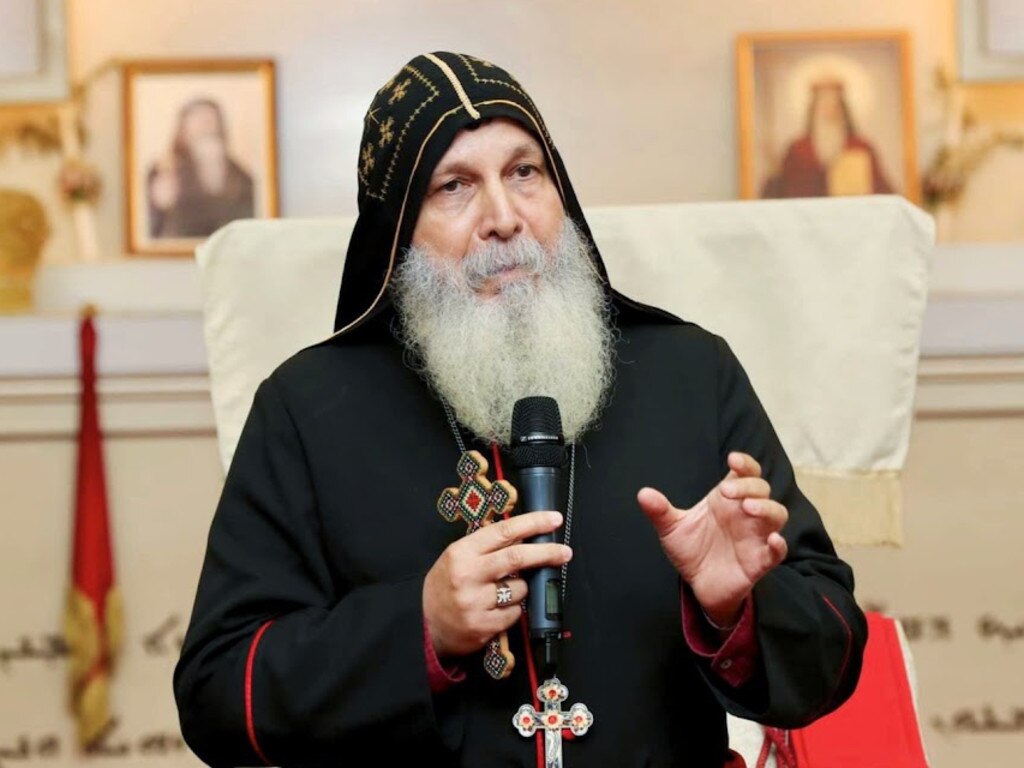
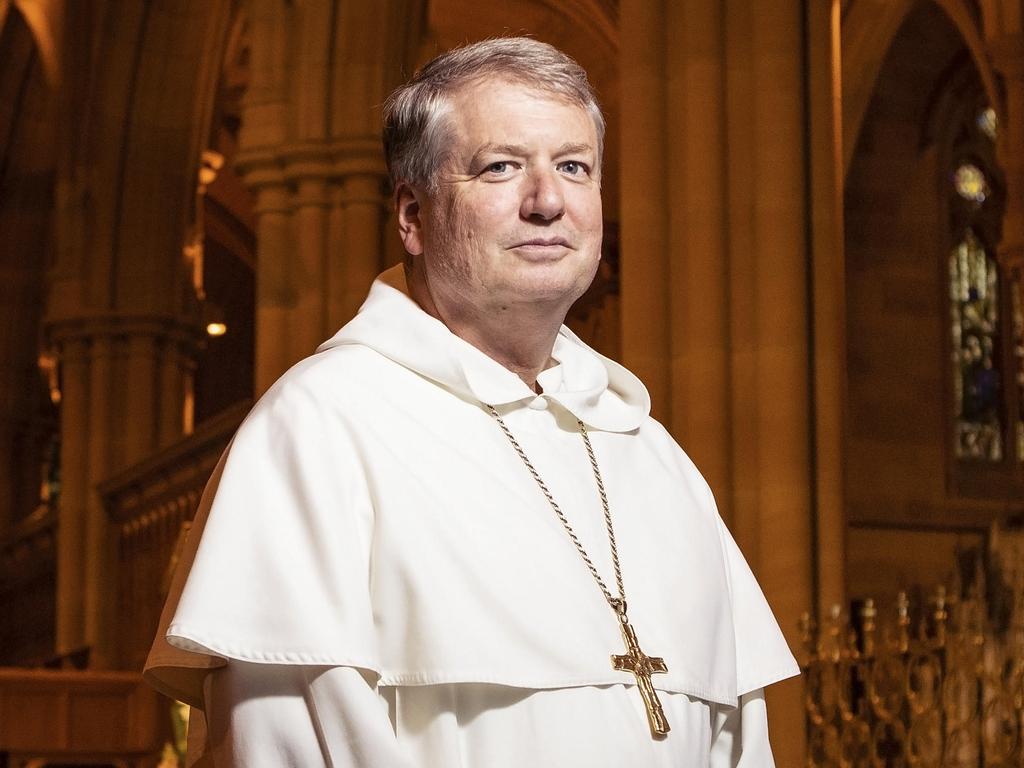



Is the Bible hate speech? Could a Christian minister, or any ordinary person, be prosecuted for reading out sections of the New Testament?